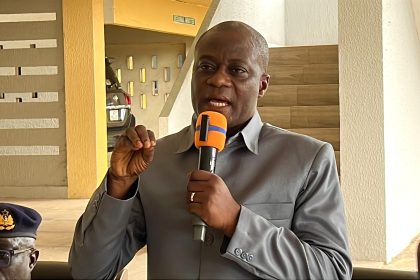The management of Whistle Blowers and Journalists Safety International Centre (WAJSIC), has introduced residents to advanced encryption and anonymity tools designed to safeguard their identities and communications.
The session explored the dangers of spyware, browser fingerprinting, and SIM card surveillance, stressing the importance of using foreign eSIM providers and privacy-focused operating systems like GrapheneOS and CalyxOS for high-risk users.
The two-day workshop, focused on encryption basics, digital hygiene, VPN use, and identity protection through the Tor network and Tails operating system.
Mr. Oliver Linow, Digital Security Expert Deutsche Welle Company, the Facilitator of the programme explained that encryption was essential for journalists handling sensitive information, as it prevented unauthorised access and tampering.
He said tools such as VeraCrypt, BitLocker, and File Vault were demonstrated for securing hard drives and files.
Mr Linow urged journalists to “adopt a privacy-first approach in their work,” adding that tools such as OnionShare and SecureDrop can help whistleblowers and media houses exchange sensitive files securely and anonymously.
He highlighted that “while VPNs rely on private companies, Tor is community-run and offers privacy by design.”
Participants expressed appreciation for the hands-on training, noting that the knowledge would strengthen their ability to protect themselves and their sources in an increasingly digital and shrivelled media environment.
They also learnt Virtual Private Networks (VPNs) and the Tor Browser, which anonymise online activity by routing traffic through multiple encrypted servers.
Mr. Anas Aremeyaw Anas, an Investigative Journalist with the Tiger Eye, advised participants to maintain a low profile when working on sensitive stories to ensure their personal safety and the security of their investigations.
He urged participants to avoid predictable routine and adopt secure methods of movement and communication during fieldwork.
The award-winning undercover journalist also advised media practitioners to steer of a clear of isolated or dangerous areas, especially when working alone and always have a backup plan in case of emergencies.
He also encouraged collaboration and peer learning, noting that “we learn from each other,” and that journalists should share safety tips and experiences to strengthen collective resilience in the field.
Madam Bernice Abanga, Administrator of WAJSIC expressed her profound gratitude to their partners, “I want to use this opportunity to thanked DW-TV, GIZ, etc for continue supporting WAJSIC.”
She said the organised would continue to protect and preserve whistleblowers and journalists shinning the light of anti-corruption and accountability across the African continent.
GNA






